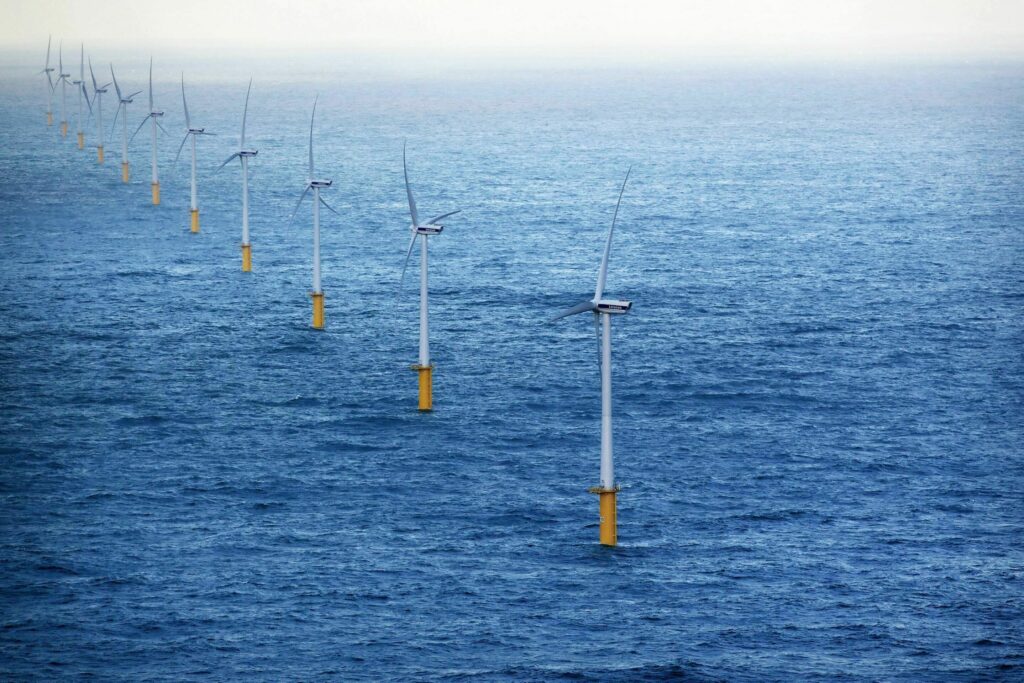The European Commission has approved Belgium’s support mechanism for new wind farms set to be built off its coast, with the first auction to commence on 28 October.
On Friday, the European Commission gave the green light for the state aid mechanism amounting to €682 million. This approval paves the way for the auction of a 700-megawatt (MW) wind farm in the Princess Elisabeth Zone, a designated area in the North Sea for the new developments.
The auction process, announced by acting Energy Minister Tinne Van der Straeten (Groen), will allow developers to place bids. A maximum price of €95 per megawatt-hour (MWh) has been set. If market prices fall below this, the government will cover the difference to ensure developers receive a guaranteed price.
Conversely, if prices exceed this limit, developers must pay back the difference. Developers willing to accept lower prices will score better in the auction.
A recent auction in the United Kingdom saw winning bids between 65 and 70 euros per MWh. Criteria for the auction will not solely focus on the lowest price; citizen participation, for example, will also be a mandatory criterion.
Minister Van der Straeten described this as a crucial step in Belgium’s ambition to become energy-independent and climate-neutral.
"Locally produced, affordable renewable energy is not only the future of our energy model; it is the strongest shield against extreme price volatility and an important weapon in the fight against climate change. With the European Commission’s approval, Belgium is poised to make a significant leap in its energy transition, promoting a more sustainable and inclusive energy future."
The first wind farm in the Princess Elisabeth Zone is expected to be operational by the end of 2028. Ultimately, the zone should deliver 3.5 gigawatts of new capacity.

